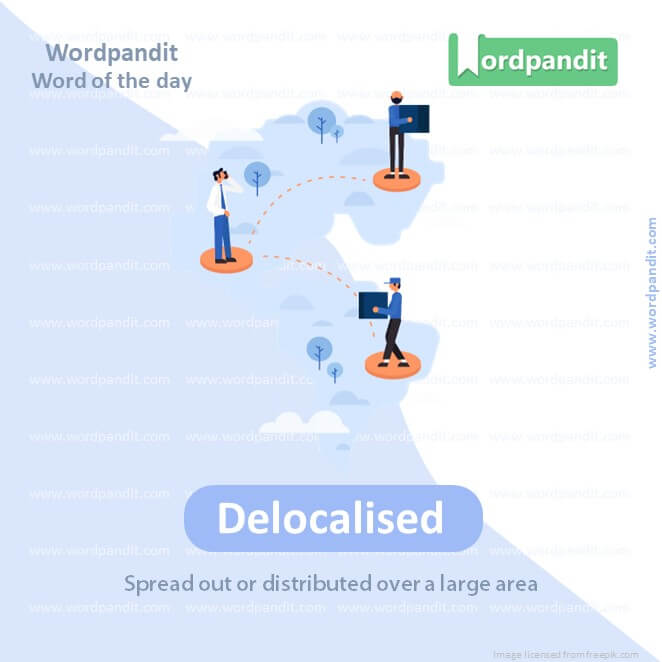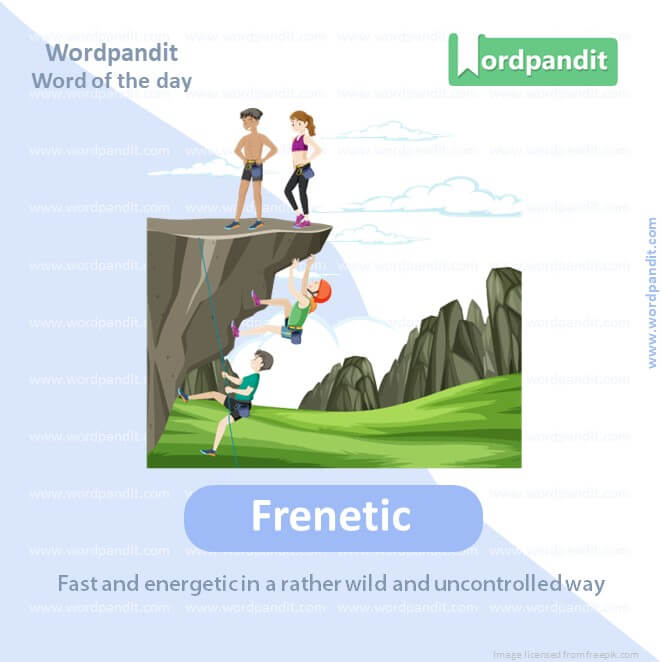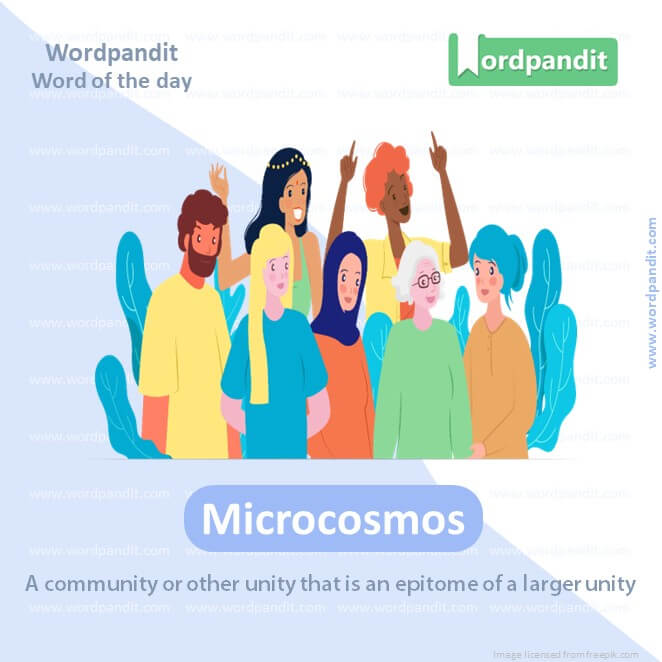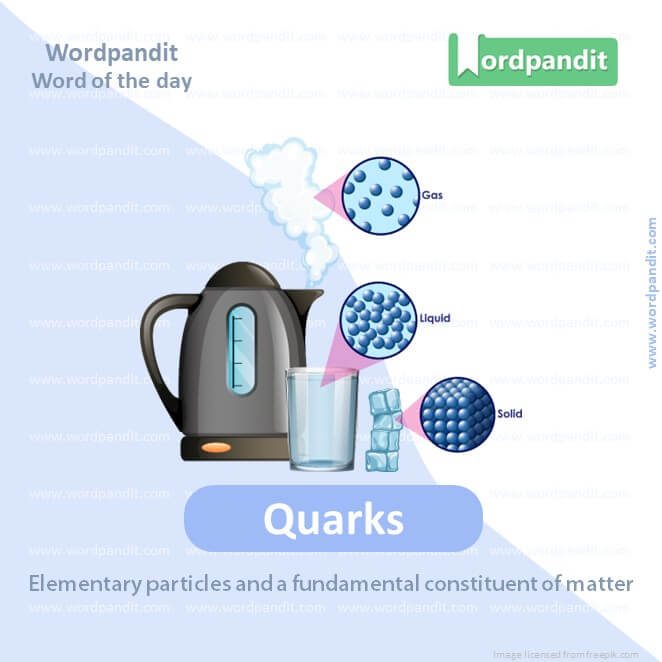Daily Vocabulary Words: List of Daily Used Words in Leading Indian Newspapers
Hi there. Welcome to this special section @ Wordpandit. Our endeavour here is straightforward: highlighting daily vocabulary words that you would come across in leading newspapers in the country. We have included the following newspapers in our selection:
• The Times of India
• The Economic Times
• Hindustan Times
• Mint
• Indian Express
We are putting in extensive work to develop your vocabulary. All you have to do is be regular with this section and check out this post daily. This is your repository of commonly used words; essentially, we are posting a list of daily used words. Hence, this has significant practical application as it teaches you words that are commonly used in leading publications mentioned above.
Visit the website daily to learn words from leading Indian newspapers.

WORD-1: Chimeras
CONTEXT: Scientists are studying the potential of chimeras, where two different animal genes are combined, to understand evolutionary processes better.
SOURCE: The Times of India
EXPLANATORY PARAGRAPH: Imagine an animal that’s part lion, part goat, and part snake. That mixed-up creature is what we call a chimera. It’s a word for creatures made up of different parts or a mix of things.
MEANING: A thing which is hoped for but is illusory or impossible to achieve (noun)
PRONUNCIATION: Kymeeras
SYNONYMS: Hybrid, mixture, blend, composite, combination
USAGE EXAMPLES:
1. The scientist was trying to create chimeras in the lab.
2. The dragon in the story was a chimera with eagle wings.
3. Her dream of a perfect world was nothing but a chimera.
4. Some chimeras exist only in fantasy novels.

WORD-2: Delocalised
CONTEXT: With the rise of remote working, many employees have become delocalised, breaking free from traditional office boundaries.
SOURCE: Mint
EXPLANATORY PARAGRAPH: Imagine a toy that isn’t just in one room but spread out all over your house. Delocalised means something that is spread out and not just in one place.
MEANING: Spread out or distributed over a large area (adjective)
PRONUNCIATION: Deelohcuhlized
SYNONYMS: Spreadout, dispersed, scattered, diffused, distributed
USAGE EXAMPLES:
1. The company’s workforce is delocalised, with employees all over the world.
2. Thanks to technology, many jobs are now delocalised.
3. The festival had a delocalised format with events in multiple cities.
4. The energy in the molecule is delocalised across its structure.

WORD-3: Frenetic
CONTEXT: The city’s bazaars buzzed with frenetic activity just before the festive season, highlighting a rebound in consumer sentiment.
SOURCE: Hindustan Times
EXPLANATORY PARAGRAPH: Think of when you’re super excited and running around really fast, like on your birthday. Frenetic means really fast, active, and sometimes a bit wild.
MEANING: Fast and energetic in a rather wild and uncontrolled way (adjective)
PRONUNCIATION: Fruhnetik
SYNONYMS: Frantic, wild, feverish, hectic, hyperactive
USAGE EXAMPLES:
1. The city had a frenetic pace of life.
2. She made a frenetic dash to the airport.
3. The dancers moved in a frenetic rhythm on stage.
4. The market was a hub of frenetic activity.

WORD-4: Microcosmos
CONTEXT: The dense rainforests are often seen as a microcosmos, a smaller representation of Earth’s vast and varied ecosystems.
SOURCE: Indian Express
EXPLANATORY PARAGRAPH: Imagine a tiny world inside a raindrop, with its own little plants and creatures. Microcosmos means a small version of something bigger, like a tiny world representing the big world.
MEANING: A community or other unity that is an epitome of a larger unity (noun)
PRONUNCIATION: Mykrokosmos
SYNONYMS: Miniature, smallscale, little world, epitome, replica
USAGE EXAMPLES:
1. The garden was a microcosmos of the world with various plants.
2. School is a microcosmos of the society we live in.
3. He saw the city as a microcosmos of human life.
4. The island is a microcosmos of biodiversity.

WORD-5: Quarks
CONTEXT: Physicists at a recent conference discussed the enigma of quarks and their pivotal role in the composition of matter.
SOURCE: The Economic Times
EXPLANATORY PARAGRAPH: You know how toys are made up of small pieces? Well, everything is made up of super tiny pieces called atoms. And these atoms? They’re made up of even tinier pieces called quarks!
MEANING: Elementary particles and a fundamental constituent of matter (noun)
PRONUNCIATION: Kwarks
SYNONYMS: Elementary particles, basic units, building blocks, matter components, subatomic particles
USAGE EXAMPLES:
1. Scientists study quarks to understand the universe better.
2. Quarks are among the smallest things that exist.
3. Protons are made up of quarks bound together.
4. The behavior of quarks is still a mystery in many ways.
WORD -6: Abhorrent
CONTEXT: The rise in hate crimes in recent years is abhorrent and goes against the country’s core values of unity and diversity.
SOURCE: Hindustan Times
EXPLANATORY PARAGRAPH: Think about something you really, really don’t like—maybe a food that tastes yucky to you. When you strongly dislike something because you think it’s wrong or bad, that feeling is called “abhorrent.”
MEANING: Inspiring disgust and hatred; repugnant. (adjective)
PRONUNCIATION: Abhorrent
SYNONYMS: Repulsive, detestable, revolting, repugnant, loathsome
USAGE EXAMPLES:
1. Bullying is abhorrent behavior.
2. Many people find cruelty to animals abhorrent.
3. The crime was particularly abhorrent.
4. Prejudice and discrimination are abhorrent to our society.
WORD -7: Stark
CONTEXT: The stark difference between urban development and rural stagnation is becoming a central issue for policymakers.
SOURCE: Mint
EXPLANATORY PARAGRAPH: Imagine you have a white paper with nothing on it. It’s very clear and plain. That’s what “stark” means—something clear, strong, or sometimes even harsh.
MEANING: Severe or bare in appearance or outline; complete or total. (adjective)
PRONUNCIATION: Stahrk
SYNONYMS: Clearcut, distinct, obvious, sheer, utter
USAGE EXAMPLES:
1. The room was stark and had no decoration.
2. The difference between their opinions was stark.
3. The mountains presented a stark contrast against the blue sky.
4. His failure was a stark reminder of the challenges ahead.
WORD-8: Zombie
CONTEXT: With the growing popularity of horror films, the “zombie” genre is receiving a revival in the national cinema.
SOURCE: Indian Express
EXPLANATORY PARAGRAPH: Imagine a character from a spooky story who walks around slowly, looking for food but isn’t really alive. That’s a zombie! People also use the word when they’re feeling really tired and can’t think straight.
MEANING: A person who is or appears lifeless, apathetic, or completely unresponsive to their surroundings or a fictional undead character. (noun)
PRONUNCIATION: Zombee
SYNONYMS: Ghoul, walking dead, undead, automaton, drone
USAGE EXAMPLES:
1. He felt like a zombie after staying up all night studying.
2. The movie is about a town overrun by zombies.
3. I need coffee, or I’ll be a zombie all day.
4. The new video game features zombies as the main enemies.
WORD-9: Revolutionizing
CONTEXT: Advances in artificial intelligence are revolutionizing the healthcare sector, leading to quicker diagnoses and personalized treatments.
SOURCE: The Economic Times
EXPLANATORY PARAGRAPH: Imagine using a toy that changes how you play entirely. “Revolutionizing” means making big changes to something, so it becomes way better or different.
MEANING: Completely changing the way something is done, thought about, or made. (verb)
PRONUNCIATION: Rehvuhlooshuneyezing
SYNONYMS: Transforming, overhauling, reforming, altering, modernizing
USAGE EXAMPLES:
1. The internet is revolutionizing the way we communicate.
2. His new method is revolutionizing the industry.
3. 3D printing is revolutionizing manufacturing.
4. She is revolutionizing the art of dance with her innovative styles.
WORD-10: Witticism
CONTEXT: The author’s latest book is peppered with witticisms, reflecting his sharp and humorous take on contemporary society.
SOURCE: The Times of India
EXPLANATORY PARAGRAPH: Think of a funny little joke or comment that makes everyone laugh. That’s called a “witticism.” It’s a smart and funny remark.
MEANING: A witty and clever remark or comment. (noun)
PRONUNCIATION: Wittisizm
SYNONYMS: Quip, jest, pun, joke, oneliner
USAGE EXAMPLES:
1. He was known for his sharp witticisms.
2. Everyone laughed at her clever witticism.
3. “Better late than never,” he said, always ready with a witticism.
4. The book is filled with humorous witticisms that kept me entertained.
Vocabulary List English
In the vibrant marketplace of language learning, a ‘vocabulary list English’ is akin to a beautifully stocked grocery list – a tool that equips learners with basic ingredients necessary for fluent communication. However, absorbing the ‘vocabulary list English’ proficiently requires more than mere memorization; it calls for an informed and strategic method of learning.
The initial step towards mastering ‘vocabulary list English’ involves adopting an interactive approach. Instead of just reading and revising, use flashcards or digital memory tools to make the process more engaging. Such modes of learning not only retain interest but also boost retention and comprehension.
When learning ‘vocabulary list English’, practice is a fundamental element. Use these words in routine conversations, emails, or social media posts. The more frequently you use the words, the swiftly their usage becomes second nature.
A crucial part of understanding ‘vocabulary list English’ lies in knowing the context. Simply knowing a word’s meaning isn’t enough; you must know how it’s used in different situations. Reading a variety of materials, from fiction and newspapers to blogs and digital content, offers insight into the practical application of these words, deepening your understanding.
Furthermore, it’s vital to frequently revise ‘vocabulary list English’. Call back to what you’ve learned and give it another run-through. This habit strengthens memory retention and enhances the likelihood of the words being accessible when needed.
In conclusion, mastering ‘vocabulary list English’ is achieved through a blend of engaging tools, active practice, contextual understanding, and regular revision. These strategies, combined, can make the task of mastering ‘vocabulary list English’ a less overwhelming and more rewarding journey. As you venture into this process, you grow and expand your English vocabulary, achieving a heightened level of fluency and confidence in your English communication abilities.













